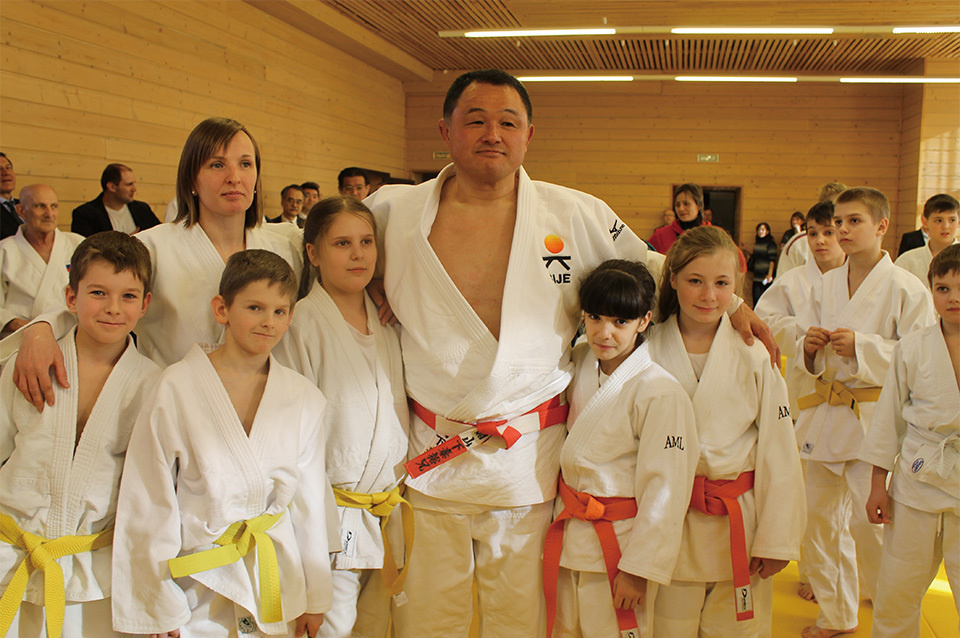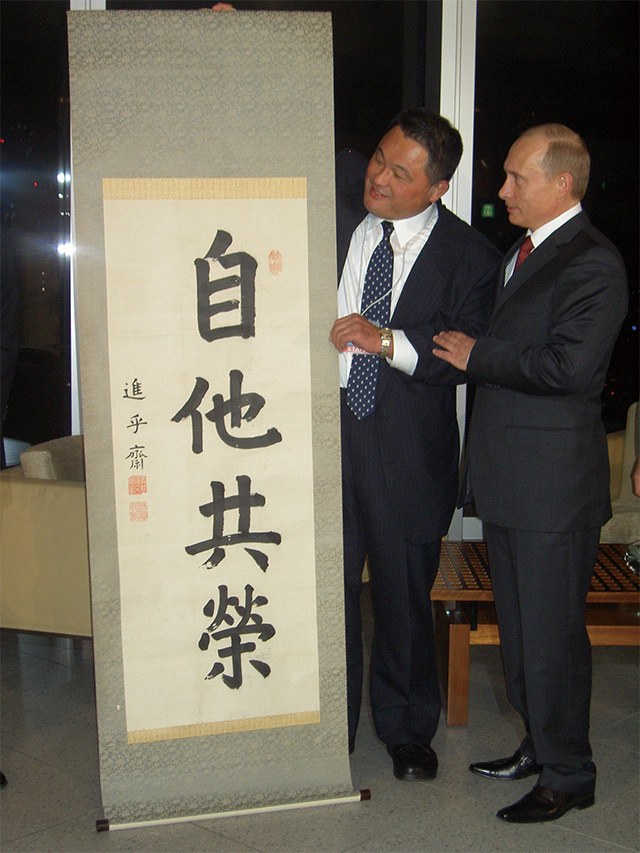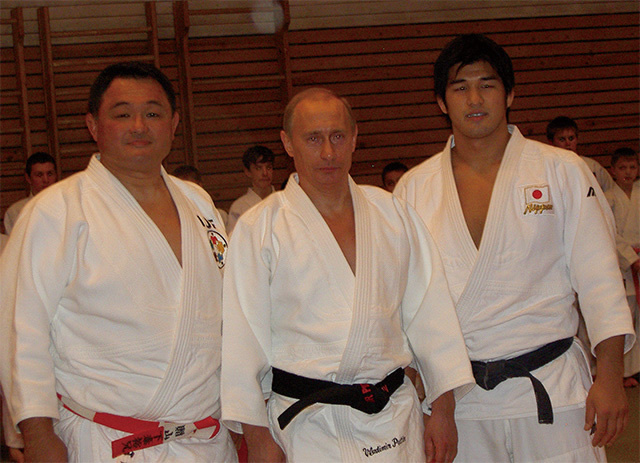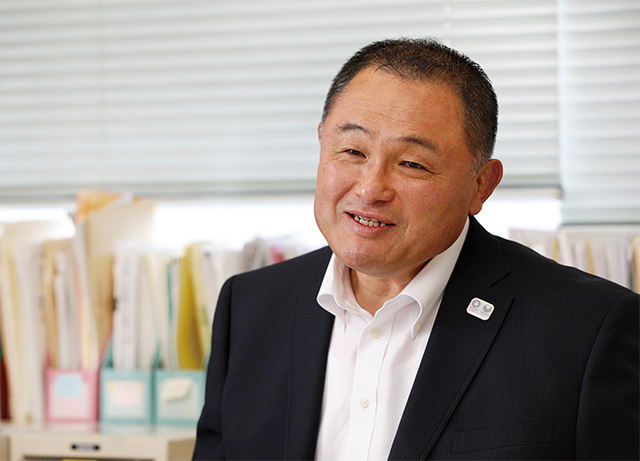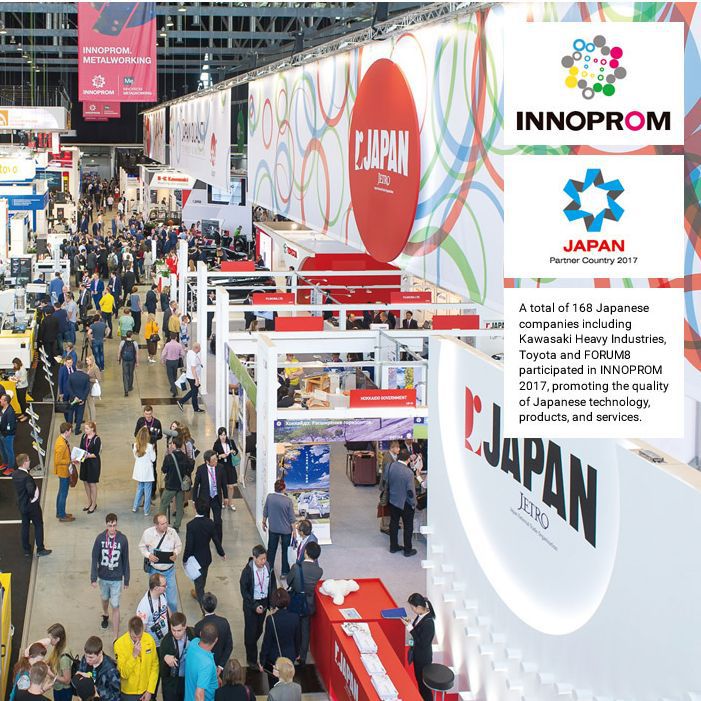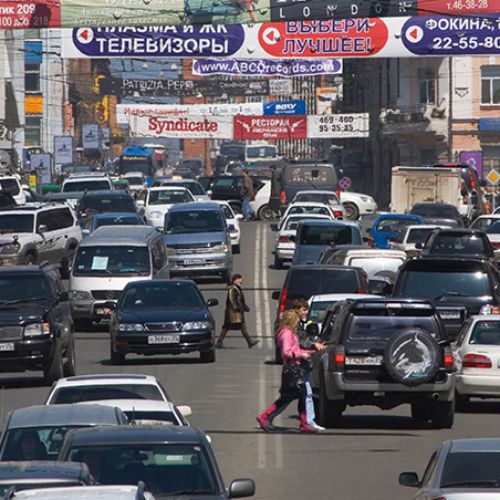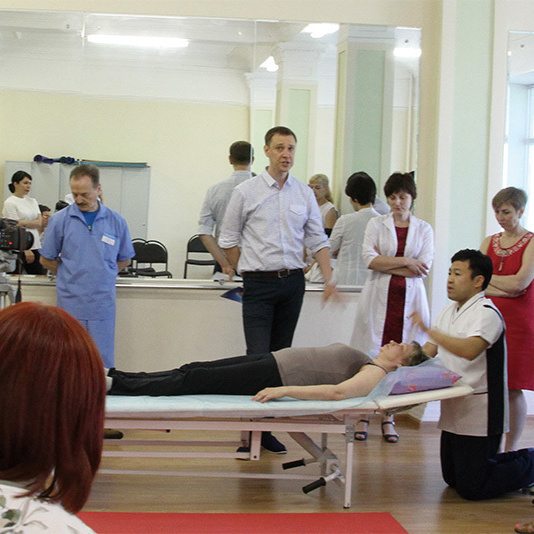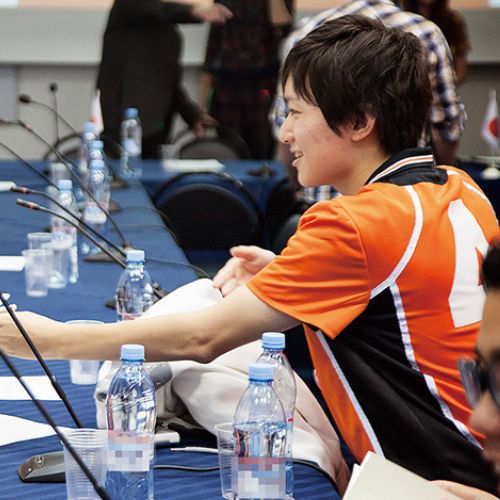When naming the top judo masters, Yasuhiro Yamashita remains one of the names that come to mind even today. Since his retirement, he has been committing himself to activities aimed at promoting international exchange through judo as he trains younger judoists.
The work of calligraphy handwritten by Grand Master Jigoro Kano that was gifted to President Putin in 2005. The work is priceless in the eyes of judoists.
Yamashita recalls, “When I was a student of Tokai University, Dr. Shigeyoshi Matsumae, founder of the university and my teacher, was a constant advocate of international exchange and goodwill relations. Even in the midst of the Cold War in the 1970s, top athletes from all over the world, including what was the Soviet Union at the time, gathered at Tokai University where we trained together as one. Being in that environment, I was greatly influenced by the teachings of Matsumae Sensei , and began to walk my path as a judoist.”
When Shigeyoshi Matsumae passed away in 1991, he left Yamashita with the following wish: “Be somebody that can contribute to world peace through sports.”
“I was only in my 30s at the time, so I felt this expectation for me was unreasonably high,” says Yamashita. “But as I carried those words of my mentor in my heart, I met more people who had the same goal, and the doors to international exchange opened one after another.”
Yamashita established the NPO “Solidarity of International Judo Education” in 2006 for the purpose of using judo as a means to deepen the understanding of other cultures and to create friendships that extend beyond borders. He would go anywhere in the world to teach judo. In 2010, he went to a dojo in Jerusalem where he taught judo to the children of Israel and Palestine who trained together on the same mat. In turn, this led to activities which invited Israeli and Palestinian judo instructors to attend a coaching seminar in Japan, where they worked together with participants from all over the world.
In 2006, Yamashita visited Russia together with Kosei Inoue, a gold medalist of the Sydney Olympics. President Putin came out wearing his judogi (judo uniform) as well, and together they taught judo to the children of Russia.
As a senior executive board member of the Japanese Olympic Committee (JOC), Yamashita is committed to making the 2020 Tokyo Olympics and Paralympics “An event that will impress and give hope to today’s youth, while showing the world how the people of Japan live with a spirit of peace and harmony.”
Yamashita also has many opportunities to meet with important individuals from various nations. In particular, he has had numerous interactions with President Putin as a fellow judoist.
Yamashita remembers, “When President Putin visited Japan in September 2000, he took time from his busy schedule to visit the Kodokan Judo Institute. There, we offered the President the red-and-white obi (belt) of a sixth dan (rank). But he politely refused to put on the obi, explaining that ‘As a judoist, I understand the weight of a sixth-dan obi. When I return to my country, I would like to devote myself to my studies and become worthy of wearing this belt one day soon.’”
Then in November 2005, when President Putin visited Japan to attend a summit conference, Yamashita presented him with a gift of a work of calligraphy handwritten by the founder of judo, Grand Master Jigoro Kano. The four Japanese kanji characters written on it mean “Grow and Prosper Together With Others,” which is the very essence of judo. According to Yamashita, “It was a treasured item of mine, but I gave it in hopes of fostering a spirit of cooperation between Japan and Russia. Upon receiving the item, President Putin said, ‘This is not something I can keep just for myself. It must be shared with everyone.’”
This autumn, the International Judo Federation will be holding its international exchange tournament, “The Kano Jigoro Cup,” in Vladivostok. The tournament commemorates the 100th year since a judo international exchange tournament was held there, and also coincides with the “Eastern Economic Forum” hosted by the Russian government.
Yamashita cheerfully adds, “Japan and its neighbor, Russia, should be able take advantage of each other’s characteristics for mutual cooperation. I sincerely hope that the leaders of both nations will lead us into an even better relationship. If there is anything I can do through judo, I will spare no effort in contributing.”

























